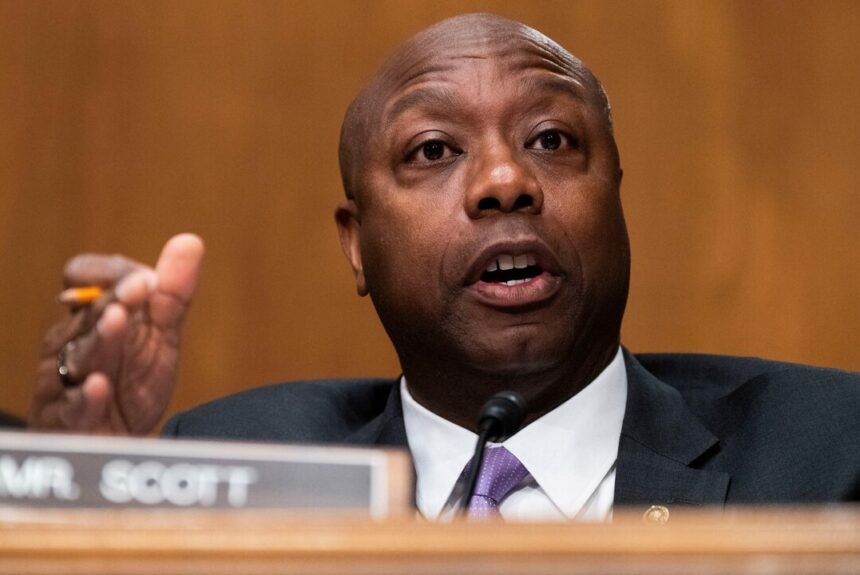Senators Joe Manchin (D-WV) and Tim Scott (R-SC) have teamed up to overturn the Securities and Exchange Commission’s (SEC) climate disclosure rule that was narrowly approved by a 3-2 vote last month. Machin joined 32 Republican senators who are co-sponsoring a resolution overturning the rule that would create a new requirement for companies to disclose their greenhouse gas emissions.
>>>READ: To Reduce Climate Risk, the SEC Should Ease the Cost of Doing Business
Critics correctly argue that the SEC rule is unlawful and essentially legislative overreach for a commission that has zero authority to legislate or shape the nation’s energy policy.
Scott said, “The SEC’s mission is to regulate our capital markets and ensure all Americans can safely share in their economic success — not to force a partisan climate agenda on American businesses. This rule is federal overreach at its worst, and the SEC should stay in its lane.”
Machin echoed this view and argued the SEC rule is “entirely overreaching, fiscally irresponsible, and simply un-American.”
One SEC Commissioner, Hester Pierce, agreed the SEC’s ruling was unprecedented. In her dissent, she said, the “requirement to disclose GHG emissions and obtain an attestation report on such disclosure is in a class of its own without comparison in the Commission’s disclosure regime.”
One the most thoughtful critiques of the SEC’s rule comes from our friend, Chris Wright, CEO of Liberty Energy who wrote the foreword for our most recent Free Economies are Clean Economies report where we “disclose” the fact that free economies are twice as clean as less free economies. In other words, if you want to lower emissions, economic freedom is your answer. In the foreword, Wright argues, “While media in the wealthy West warn of dramatic threats to human health today from climate change, the World Health Organization estimates that some 3 million people die each year from energy poverty. That is a conservative estimate, as it only considers impacts from a lack of clean cooking fuels which forces billions to suffer copious pollution from burning wood and dung indoors for cooking.”
>>>READ: The Danger of Climate Extremism
Wright’s testimony before Congress is a must-read for anyone who wants to understand the dangers of this new rule. A few key excerpts:
The story of the 20th century is the story of the triumph of energy. The arrival of fossil fuels transformed humanity, lifting billions out of poverty and more than doubling human life expectancy. Fossil fuels today support billions of people in lifestyles that were simply unimaginable only a few generations ago. Planes, trains, and automobiles changed the game for human mobility. Modern medicine, communications, the internet, and air conditioning have changed the human condition beyond anything our ancestors would recognize …
The Climate Rule’s true purpose is to regulate climate change, not protect investors and or the public interest in maintaining the health of America’s capital markets. For that reason, among others, the Climate Rule is unlawful. Specifically, the Climate Rule exceeds the SEC’s statutory authority, is arbitrary and capricious, and violates the First Amendment by compelling speech on socially and political controversial matters.
The Climate Rule is also bad public policy. It will make energy production more expensive by driving up compliance costs and making conditions more difficult for investment. Some energy companies may conclude that they cannot bear the increased costs of compliance and subsequent litigation over allegedly misleading disclosures the Climate Rule compelled them to make, and they will be forced to go private, increasing their cost of capital and in turn leading to even more expensive energy production and, ultimately, increased costs for energy consumers. Not only is that bad for American consumers, but it is also self-defeating for the Climate Rule’s goal of reducing greenhouse gas (GHG) emissions because it will drive energy production to foreign countries that lack strong environmental protections.
Wright, Pierce, Manchin and 32 GOP Senators are on the right side of stewardship.
If a private investor has heartburn about investing in a company based on its carbon footprint, that decision should be left to the investor and the company. If investors aren’t comfortable with a company’s degree of transparency they can take their money elsewhere. That’s how a free-market system works. Disrupting the markets’ ability to self-correct leads to more distortions, not fewer. When government uses top-down, coercive strategies to circumvent the legislative process they undermine the integrity of our free-market system which is far more efficient at producing abundant and cleaner energy than “experts” in Washington.
American consumers don’t want the SEC to play personal financial planner and Washington overreach never works out well. The SEC needs to get out of the way if we want more innovation for a cleaner and more prosperous planet.
The views and opinions expressed are those of the author’s and do not necessarily reflect the official policy or position of C3.
